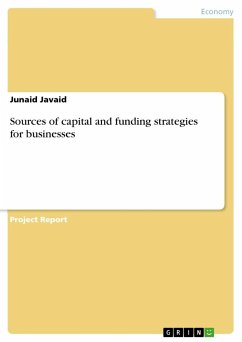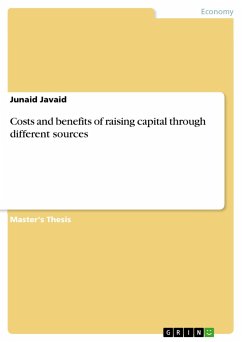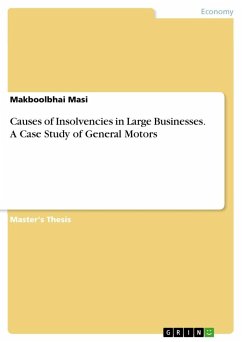Project Report from the year 2013 in the subject Business economics - Business Management, Corporate Governance, grade: C, University of Bedfordshire (MSc Finance & Business Management), language: English, abstract: Financial Capital is considered as the superior source of funding required by the firms to begin or to carry its operation. Different theories have been proposed over time to assist managers in making the financing decision. In this regard the Pecking Order theory is the prominent one, which urged the company to give Retained Profit as the first priority whenever the company face the situation to raise capital. Debt is the only attractive alternative which not only supports the company to start and survive but also helps it to expand its operations with the intension of challenging the leaders of the specified industry. The capability of the company to finance its working capital is the major concern which is the main endeavour of finance manager to resolve. It is a essential requirement for the company to settle the account with the supplier of the fund before entering the agreement. The source of capital for Working Capital can be divided in to four main classes (Internal Financing, Security Financing, Loan Financing and other financing sources). It has been understood from the Case Study section, that Royal Bank of Scotland (RBS), Lloyds TSB and HBOS would undergo the Bailout package which would not only give the government the stakes within the Bank but also would permitted them to control and monitor compensation and financial plan closely with the help of their appointed Board of Directors. On the other hand Barclays, which would be hoped to avoid government support is looking more resistant to raise £6.5 Billion through private investor and also would scrapped its year 2008 dividend with the initiative of saving £2 Billion. It has been found out that Royal Bank of Scotland (RBS), Lloyds TSB and HBOS are more interested in going for Security financing in meeting its working capital needs, whereas Barclays is looking enthusiastic for utilising Loan Financing for the purpose of Sourcing of Capital. It has been cleared that only relying on one source of capital would be a risky option for both new & incumbents in any industry. This point may be cleared through the occurrence of situation where the company needed to repay the associated funds acquired from the one specific source sooner than the company's plans and projections where the company must look for other sources which would not only make possible for the company to meet its working capital needs but also to weaken the supplier of funds power as well.
Hinweis: Dieser Artikel kann nur an eine deutsche Lieferadresse ausgeliefert werden.
Hinweis: Dieser Artikel kann nur an eine deutsche Lieferadresse ausgeliefert werden.








